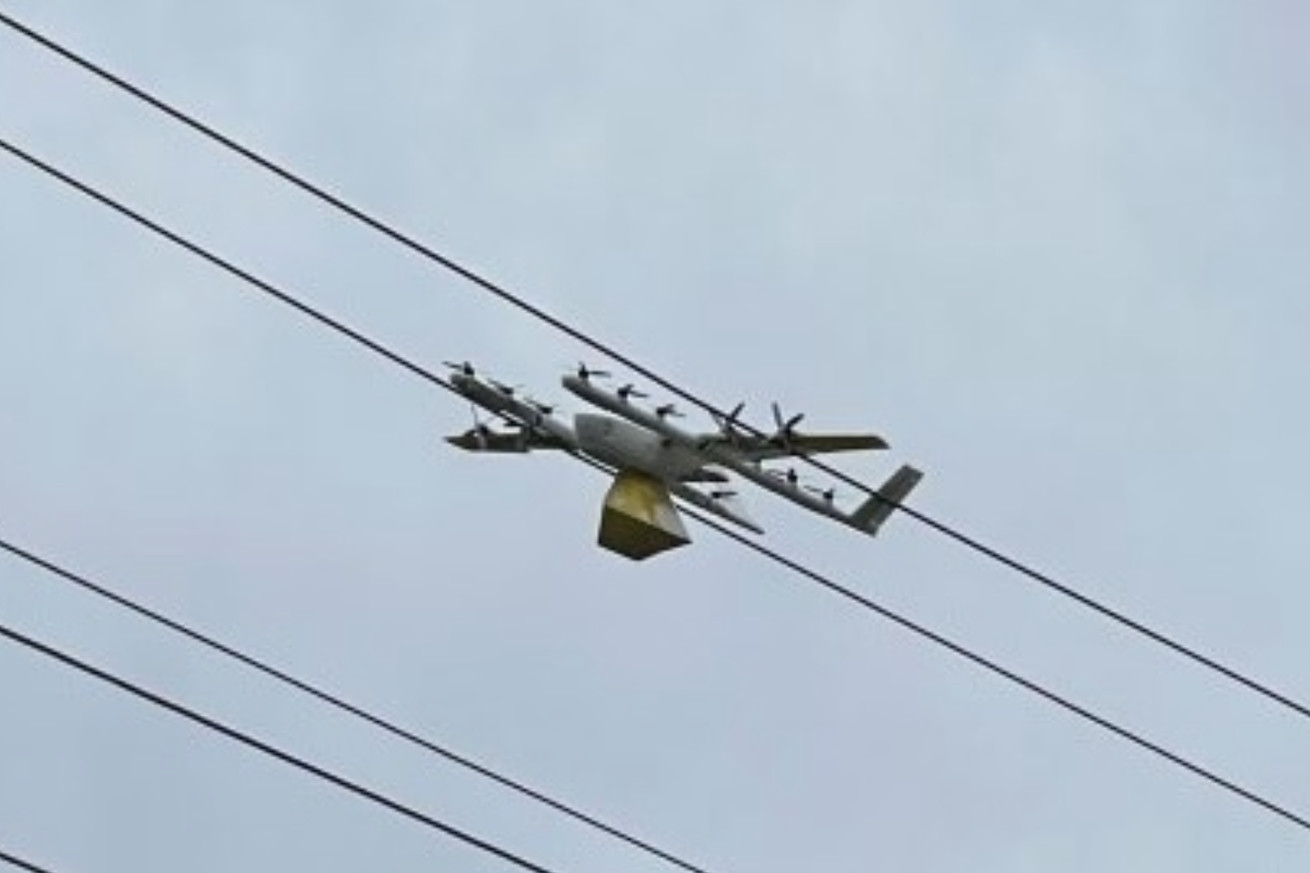
A food delivery drone operated by Alphabet subsidiary Wing landed on overhead power lines in Brisbane, Australia, and caught fire. As a result, the network was shut down by energy firm Energex to respond to the incident, leaving thousands without power.
Some 2,000 individuals were left without electricity for around 45 minutes, reports ABC News and The Age, while 300 customers had no power for three hours.
Energex spokesman Danny Donald told The Age that the drone “landed on top of 11,000 volts and whilst it didn’t take out power, there was voltage tracking across the drone and the drone caught fire and fell to the ground.”
A spokesperson for Wing told the publication that the drone made a “precautionary controlled landing yesterday … and came to rest on an overhead power line.” The company said it then reported the incident to Energex. “Two hours later, during the retrieval process, there was a power outage in the area,” said the spokesperson. “We’re sorry for any inconvenience caused. We’re currently conducting a review of yesterday’s event.”
Donald told ABC News: “This is the first time that I’ve seen it happen. It could have simply been an equipment malfunction. It may have been human error.” He added that there was no damage to the network and that Energex responded quickly to the problems. “The meal was still hot inside the drone’s delivery box when the crew got there,” said Donald.
“Fifteen years ago, we asked people to be careful if they were giving their children kites for Christmas and where they were flying them,” said the Energex spokesperson. “Now we’re asking parents to be very careful with where their kids fly their drones.”
/cdn.vox-cdn.com/uploads/chorus_asset/file/24067446/1243103329.jpg) Image: Andy Jacobsohn/AFP via Getty Images
Image: Andy Jacobsohn/AFP via Getty Images
The drone wasn’t flow by children, though, but by Wing — a subsidiary of Google’s parent company Alphabet. Wing’s drones operate as both fixed-wing aircraft and hovering copters, flying autonomously to deliver food and beverages over short journeys typically lasting less than 10 minutes. The company currently operates in three countries — the US, Finland, and Australia — but has found particular success in the Australian suburbs.
As of August last year, Wing offered deliveries to around 100,000 customers in Brisbane, where the crash took place, and has made some 200,000 deliveries as of this March. Wing says drone deliveries suit suburban areas as these regions provide plenty of customers, easy flying conditions, and are not as well served as cities by delivery companies.
Although drone deliveries have been much hyped over the past decade, they’ve failed to scale in the way that companies like Amazon initially promised. Success has instead been found in more focused applications; like with Zipline, which delivers small but high-value items like blood and medicine in rural areas.

Aucun commentaire:
Enregistrer un commentaire